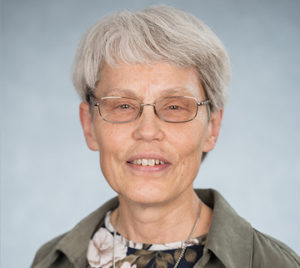
Readings:
First Reading: Sirach 15:15-20
Responsorial Psalm 119:1-2, 4-5, 17-18, 33-34
Second Reading: 1 Corinthians 2:6-10
Gospel: Matthew 5:17-37
Today’s readings call us to a high standard. In fact, the gospel includes two of the most controversial texts in the whole New Testament—one that suggests we should cut off any body part that causes us to sin, and another that rejects the possibility of divorcing one’s spouse. It is interesting that the prohibition of divorce is assumed to be a literal command, while essentially every exegete and commentator argues that Jesus did not really mean that people should physically mutilate themselves. Scholars tell us that the real point of this whole section of Matthew’s gospel is Jesus’s insistence that we must allow ourselves to be transformed by divine righteousness even more profoundly than what has been called for by the public representatives of piety (in his day, the scribes and Pharisees). We should long for God’s reign so much that we would let go of absolutely anything that stands in the way.
Jesus had the ability to see into the human heart, and he knew that while few of us have the audacity to carry out a murder, most of us on occasion nurse angry and hateful thoughts toward others. Sometimes such reactions and thoughts seem out of our control, cropping up again and again whenever the slightest thing jogs our memory of having been offended. The sobering reality is that it actually may be more difficult to eliminate an entrenched pattern of angry reactions than it would be to cut off a body part. It can take years or even decades of dedicated commitment to prayer, self-reflection, and/or psychological therapy to unearth the roots of anger and allow them to be replaced by responses of mercy and forgiveness. Such an inner transformation cannot be achieved by any instant surgical fix, but only by the humility of accepting one’s limitations and staying the course, no matter how long it may take.
The other readings provide the paradoxical backdrop to this teaching of Jesus. On the one hand, as 1 Corinthians affirms, God’s wisdom and God’s ways will always be far beyond the grasp of the human mind, often requiring us to practice enduring faith and discernment in the midst of situations that appear dark and confusing to us. On the other hand, as Sirach teaches, God has given us the ability and the guidance to choose what is right—and fully expects us to do so! Jesus puts these two pieces together and teaches that with radical faith in God, human beings are capable of much more than just conforming to customs and rules of good conduct. With openness to the Holy Spirit, we are gifted with the ability to recognize and respond to the invitation of God to the long, demanding journey of inner transformation. This is the high calling that Jesus offers—if only we have the courage to accept.
Sr. Mary Frohlich, RSCJ
Professor of Spirituality